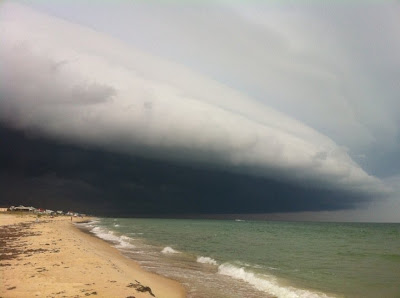Ezekiel Four
Starting last Thursday, Friday, Saturday, Sunday, and all this week, the Daily Office Lectionary has us reading from Ezekiel. This morning’s lesson is Ezekiel chapter 4:
And you, O mortal, take a brick and set it before you. On it portray a city, Jerusalem; 2and put siege-works against it, and build a siege-wall against it, and cast up a ramp against it; set camps also against it, and plant battering-rams against it all round. 3Then take an iron plate and place it as an iron wall between you and the city; set your face towards it, and let it be in a state of siege, and press the siege against it. This is a sign for the house of Israel.
4 Then lie on your left side, and place the punishment of the house of Israel upon it; you shall bear their punishment for the number of the days that you lie there. 5For I assign to you a number of days, three hundred and ninety days, equal to the number of the years of their punishment; and so you shall bear the punishment of the house of Israel. 6When you have completed these, you shall lie down a second time, but on your right side, and bear the punishment of the house of Judah; forty days I assign you, one day for each year. 7You shall set your face towards the siege of Jerusalem, and with your arm bared you shall prophesy against it. 8See, I am putting cords on you so that you cannot turn from one side to the other until you have completed the days of your siege.
9 And you, take wheat and barley, beans and lentils, millet and spelt; put them into one vessel, and make bread for yourself. During the number of days that you lie on your side, three hundred and ninety days, you shall eat it. 10The food that you eat shall be twenty shekels a day by weight; at fixed times you shall eat it. 11And you shall drink water by measure, one-sixth of a hin; at fixed times you shall drink. 12You shall eat it as a barley-cake, baking it in their sight on human dung. 13The Lord said, ‘Thus shall the people of Israel eat their bread, unclean, among the nations to which I will drive them.’ 14Then I said, ‘Ah Lord God! I have never defiled myself; from my youth up until now I have never eaten what died of itself or was torn by animals, nor has carrion flesh come into my mouth.’ 15Then he said to me, ‘See, I will let you have cow’s dung instead of human dung, on which you may prepare your bread.’
16 Then he said to me, Mortal, I am going to break the staff of bread in Jerusalem; they shall eat bread by weight and with fearfulness; and they shall drink water by measure and in dismay. 17Lacking bread and water, they will look at one another in dismay, and waste away under their punishment.
Nasty, innit. Bitter, harsh, crude. Verses 1-13 are oracle, the Lord God speaking to Ezekiel, assigning him days to lie on his side signifying punishment of Israel (the northern kingdom) and Judah (the southern kingdom); and defining the bread Ezekiel is to mix, bake and eat during his ordeal. In verse 14 Ezekiel protests the harshness of what God requires of him, then it’s oracle again at verses 15-17 as God eases up on the prophet a bit, but comes down hard on his people. God is foretelling the horrendous destruction that he will bring upon Jerusalem, prophecy that Ezekiel lives to see fulfilled, the destruction and the exile of upper class families of Judah to Babylon.
In today’s famous chapter God requires Ezekiel to lie on his left side three hundred ninety days to protest the evil of Israel, and then to lie on his right side forty more days to protest the evil of Judah. The days signify years. The entire assignment seems harsh treatment of this faithful prophet.
There came a time in Israel/Judah’s history with God when God was so displeased with his people for their neglect of the temple cult and abominable oppression of the lower classes by the ruling class and wealthy landowners -- a time when God became literally the enemy of his people. God determined to crush them using their enemies as God’s weapon. In due course God carried out his words, which were not simply threats, but promises. Years later God would raise up a remnant who surely would be faithful; but that never panned out. Poor Yahweh, he never truly gave up on the people he loved. It’s a wonder God didn’t die of a broken heart.
Is it any different today? Although Ezekiel meant his prophecies for that long ago age, the readings are meant as much for us as God and Ezekiel intended them in the seventh and sixth century B.C.
With all the wheels and apocalyptic visions and strange creatures, Ezekiel is a great read and makes for fascinating Bible study. Whoever has read Revelation and then reads the Book of Ezekiel (and also the second half of the Book of Daniel) will recognize similar creatures and visions and symbols that characterize apocalyptic writing.
Ezekiel 4 is an interesting lesson for D-Day the Sixth of June. Sixty-seven years today and many of us still remember. It’s the task of preacher and people to discern the Spirit’s interweaving of June 6, 1944 and Babylon's 587 B.C. destruction of Jerusalem and Monday, June 6, 2011.
Perhaps the ominous cloud is significant again?
Peace.
Peace anyway.
TW+
